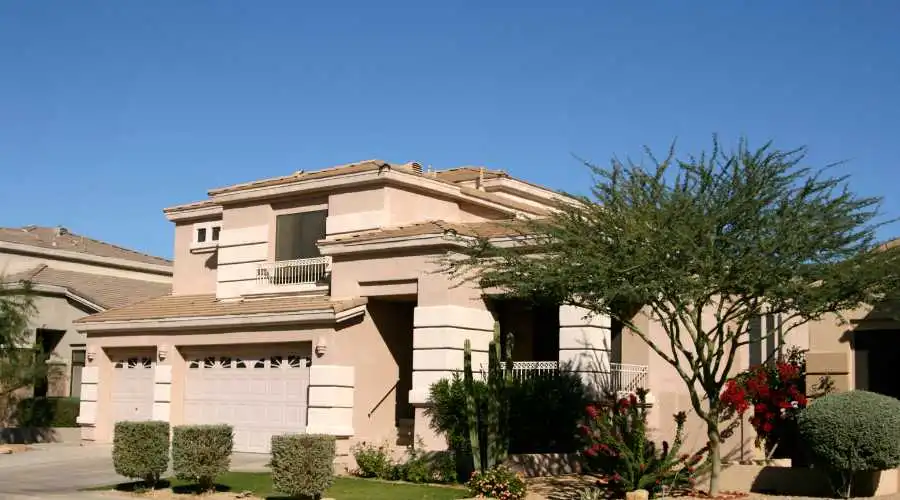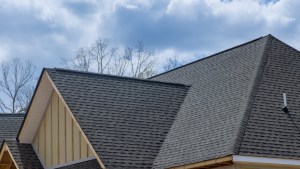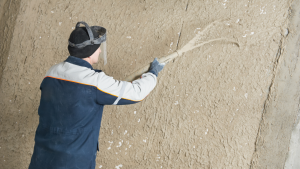When you think of stucco, you might envision homes basking in the warm, dry embrace of desert-like landscapes. But what if your dwelling faces a different reality—a place where winter blankets the world in snow and icy chills? Can stucco withstand the harshness of freezing temperatures? Well, in this article, you’ll discover that this versatile building material has more tricks up its sleeve than you might think.
In truth, stucco is exceptionally weather-resistant, transcending climate boundaries. It can also be a smart choice for homes in colder regions. The key to success lies in partnering with a reputable contractor who knows their stucco inside and out.
So, let’s delve into the reasons why stucco can stand tall even in the frigid cold:
Installation vs. Endurance in the Cold
The initial installation of stucco is a task best tackled in milder weather, ideally above the freezing point. Extreme cold during installation can pose challenges, causing the stucco mixture to freeze and harden prematurely.
However, once stucco graces your exterior, it becomes a resilient warrior against the cold. This means you don’t need to swap your snowy surroundings for the arid landscapes of Arizona. Whether you’re nestled in the Midwest or along the icy Atlantic Coast, stucco can handle a wide range of temperatures and weather conditions.
Swift and Simple Repairs
While winter’s icy grip—think snow and freezing temperatures—can potentially wreak havoc on your home’s exterior, stucco can stands strong against it. The lower portions of your stucco might take the brunt, exposed as they are to persistent moisture that can trigger cracks of varying sizes.
Here’s the silver lining: if the cracks measure less than 1/8 inch wide, you can roll up your sleeves and repair them yourself—no need to summon a professional. For those larger cracks, a skilled stucco contractor can step in and resolve the issue, provided you act promptly.
Crafted to Endure
Stucco, while not invulnerable, boasts inherent durability. It sports a protective barrier underneath that serves as a shield against moisture—a crucial trait given that stucco naturally has pores. Experienced stucco craftsmen know how to lay the groundwork correctly, fortifying your home against prolonged exposure to moisture.
The Significance of Stucco in Cold Climates
Having explored the remarkable resilience of stucco in cold climates, let’s delve deeper into why it matters and how it can enhance your home.
- Energy Efficiency: Stucco serves as a natural insulator, regulating indoor temperatures. In colder regions, stucco retains heat, reducing the need for excessive heating. This not only saves you money but also reduces your environmental footprint.
- Elevated Curb Appeal: Stucco isn’t merely functional; it’s also aesthetically pleasing. Its textured finish adds an element of elegance to your home’s exterior. Even during the coldest months, when everything is blanketed in snow, your stucco-clad home radiates timeless beauty.
- Increased Property Value: A well-maintained stucco exterior can significantly boost your home’s value. Its durability and attractive appearance make it a sought-after feature for potential buyers in any climate.
- Minimal Maintenance: Stucco demands relatively little maintenance, especially when compared to other exterior materials such as wood or vinyl. This is a significant advantage in cold climates, where harsh weather conditions can take a toll on your home’s exterior.
- Longevity: Properly installed and maintained stucco can last for decades. Its ability to withstand cold and moisture means you won’t have to worry about frequent repairs or replacements, saving you both time and money in the long run.
- Versatility: Stucco offers boundless design possibilities. You can choose from a wide array of colors and textures to create a customized look for your home. It complements various architectural styles, making it a versatile choice for any property.
Selecting the Right Contractor
While stucco offers numerous advantages for homes in cold climates, choosing the right contractor is critical to ensure a successful stucco project. Here are some key factors to consider when selecting a stucco contractor:
- Experience: Seek a contractor with a proven track record in stucco installation and repair, particularly in cold climates.
- References: Request references and take the time to inspect previous projects. Conversations with former clients can provide valuable insights into the contractor’s workmanship and reliability.
- Insurance: Confirm that the contractor possesses adequate insurance coverage, including liability insurance and workers’ compensation.
- Local Expertise: Contractors familiar with your specific climate and local building codes are better equipped to tackle the unique challenges presented by cold weather.
- Quality Materials: Inquire about the materials used by the contractor. Premium stucco and insulation materials are essential for a successful and enduring stucco installation.
So, when it comes to considering stucco installation, it’s worth engaging with Jersey Shore Stucco Repair—a seasoned expert in the field.
With over two decades of dedicated service along the entire Jersey Shore, we bring a wealth of experience in stucco and EIFS repair. Our commitment to excellence is underscored by our highly skilled workforce and state-of-the-art equipment, ensuring swift and dependable service. Our specialized expertise encompasses stucco, sealants, caulking, EIFS, and the repair and maintenance of both commercial and residential structures.
Stucco isn’t limited to sunny, dry landscapes; it’s also a good choice for those grappling with frosty winters. Its ability to brave the cold, its straightforward repair process, and its built-in toughness make it a stellar option. Beyond its practical attributes, stucco also adds timeless elegance to your home’s facade. So, embrace the allure and resilience of stucco, even amid chilly weather—it’s a decision you’re unlikely to regret.




